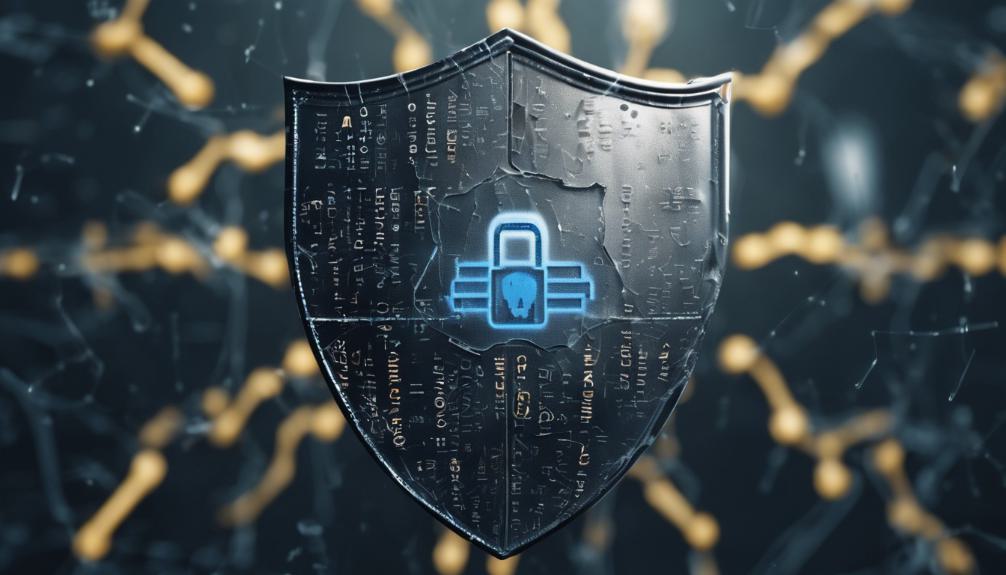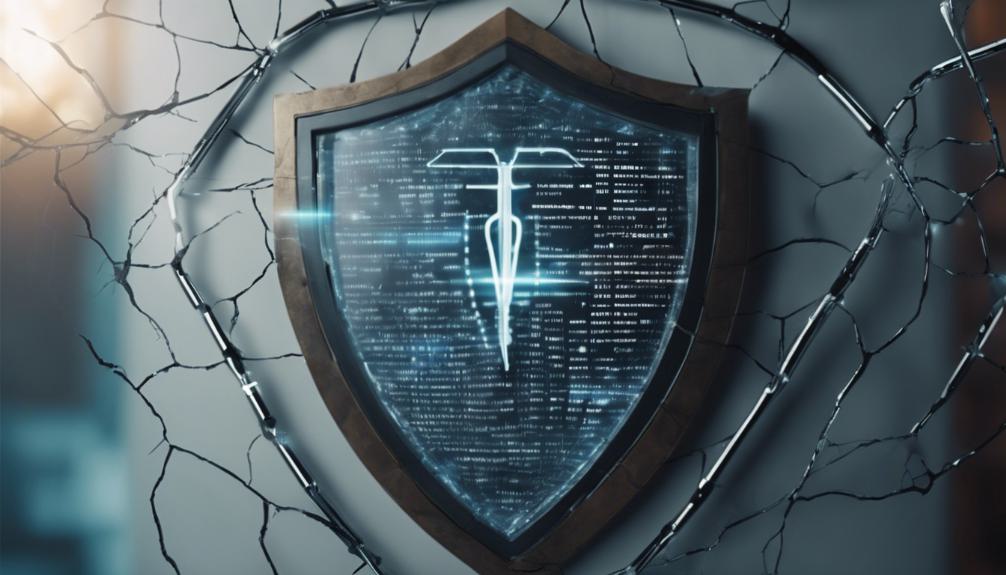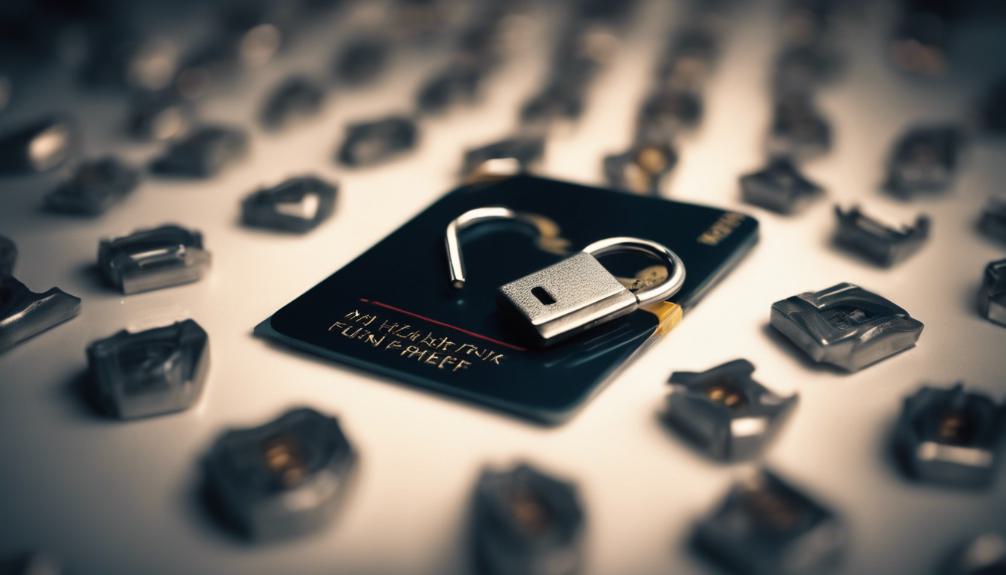NextGen Healthcare Hit by Massive Data Breach
The recent cybersecurity breach at NextGen Healthcare, which compromised the personal details of over a million individuals, has thrust the company into the spotlight, raising critical questions about the robustness of its data security measures. This incident, marking a significant lapse in safeguarding sensitive information, underscores the escalating challenges organizations face in protecting against sophisticated cyber threats. The implications of this breach extend beyond the immediate legal ramifications, touching on broader concerns of trust, privacy, and the adequacy of current cybersecurity protocols. As we explore the unfolding situation, one cannot help but ponder the future implications for both NextGen Healthcare and the healthcare IT industry at large.
Key Takeaways
- NextGen Healthcare faces a federal lawsuit for failing to protect over 1 million people's data in a cyberattack.
- Hackers accessed names, social security numbers, and other personal information between March 29 and April 14, 2023.
- In response to the breach, NextGen has enlisted cybersecurity experts and law enforcement, while offering victims identity theft protection.
- The breach underscores the critical need for robust security measures to safeguard personal information against cyber threats.
Federal Lawsuit Overview

NextGen Healthcare is currently embroiled in a federal lawsuit due to allegations that it failed to adhere to security guidelines, leading to a data breach affecting over a million individuals. This situation underscores the critical importance of maintaining rigorous security measures to safeguard personal information. In an era where data breaches are increasingly common, the responsibility of entities like NextGen Healthcare to protect the sensitive information of their clients cannot be overstated. For those dedicated to serving others, this incident serves as a stark reminder of the potential consequences of neglecting cybersecurity protocols. It highlights the need for constant vigilance, improvement of security frameworks, and a commitment to ethical standards that prioritize the privacy and well-being of individuals.
Details of Compromised Data

Understanding the specifics of the data compromised in the NextGen Healthcare breach is fundamental to grasping the extent of its impact on affected individuals. The breach resulted in unauthorized access to a range of sensitive personal information, important for anyone serving communities and individuals at risk. This included names, dates of birth, addresses, Social Security numbers, and other personally identifiable information (PII). The exposure of such data not only poses a significant risk of identity theft but also threatens the financial and personal security of over a million people. By comprehending the nature of this data, service-oriented professionals can better appreciate the profound implications of the breach, reinforcing the importance of robust data protection measures to safeguard those they aim to serve.
Timeline of Unauthorized Access
The unauthorized access to NextGen Healthcare's data occurred between March 29 and April 14, 2023, marking a critical period of vulnerability for the company. During this window, hackers exploited stolen client credentials to infiltrate the system, casting a shadow over the integrity and security of sensitive information. The breach's timeline underscores the urgent necessity for robust cyber defenses and vigilant monitoring to safeguard against such threats. For organizations dedicated to serving others, this incident serves as a stark reminder of the paramount importance of protecting client data. It reinforces the need for continuous improvement in security measures and the adoption of best practices to prevent future unauthorized access, ensuring the trust and welfare of those they serve remain uncompromised.
Previous Security Incidents

Reflecting on the recent breach, it's important to examine NextGen Healthcare's history with cybersecurity incidents to fully assess the systemic challenges they face. An earlier ransomware attack in January underscored vulnerabilities within their digital infrastructure. This incident, preceding the massive data breach affecting over a million people, highlights a pattern of security challenges. The breach, characterized by unauthorized access facilitated through stolen client credentials, raises questions about the robustness of NextGen's cybersecurity measures. Despite efforts to rectify weaknesses post-incident, such as the collaboration with cybersecurity experts and law enforcement, the recurring nature of these breaches suggests a need for a more profound overhaul of their cybersecurity protocols to safeguard sensitive client information effectively and maintain trust.
Risks of Identity Theft

Identity theft, a grave consequence of data breaches, exposes individuals to potential financial and personal harm by allowing unauthorized access to their sensitive information. This illicit act can devastate one's credit score, lead to unauthorized financial transactions, and even result in false legal accusations. For those dedicated to serving others, understanding the profound implications of identity theft is important. The breach at NextGen Healthcare, which compromised names, dates of birth, addresses, Social Security numbers, and other personally identifiable information (PII), underscores the vulnerability of personal data to cybercriminals. It highlights the necessity for stringent data protection measures to safeguard individuals' privacy and security, reinforcing the importance of vigilance in preventing such unauthorized access and the dire consequences that can follow.
NextGen's Immediate Response

Understanding the severe implications of identity theft underscores the importance of NextGen Healthcare's immediate actions following the data breach. In the wake of the incident, the company swiftly initiated an investigation, collaborating closely with cybersecurity experts and law enforcement to understand the breach's extent and prevent further unauthorized access. Recognizing the urgency of the situation, NextGen Healthcare took proactive steps by notifying the affected individuals, a move reflecting their commitment to transparency and responsibility. This notification process is fundamental for those impacted, providing them with the necessary information to guard against potential identity theft and financial fraud. By prioritizing prompt communication and cooperation with cybersecurity authorities, NextGen Healthcare demonstrated a responsible approach to managing the crisis, underscoring their dedication to their clients' safety and privacy.
Fraud Detection Services Offered

In response to the data breach, NextGen Healthcare has implemented a measure to offer affected individuals 24 months of complimentary fraud detection and identity theft protection services. This proactive step underscores NextGen's commitment to the well-being of those impacted and reflects an understanding of the potential risks posed by such breaches. By providing these services, NextGen aims to safeguard the financial health and personal security of individuals, offering them peace of mind in a time of uncertainty. The services include monitoring for unusual activities that could indicate identity theft, alerting individuals to potential fraud, and assisting in the swift resolution of any issues that arise. Through this offering, NextGen demonstrates a dedication to service and a resolve to restore trust among those affected.
Importance of Data Security

The recent NextGen Healthcare data breach underscores the critical necessity of robust data security measures to protect sensitive personal information from unauthorized access. This incident illuminates the grave consequences of failing to safeguard such data, risking not just the privacy but the overall well-being of individuals. For organizations committed to serving others, the trust placed in them by clients, patients, and customers to protect their personal information is paramount. The breach serves as a stark reminder of the importance of data security in maintaining that trust. Additionally, it highlights the potential for significant harm when personal information falls into the wrong hands, thereby emphasizing the moral and ethical duty to implement stringent data protection practices.
Preventative Cybersecurity Measures

To effectively safeguard against future cyber threats, organizations must implement thorough preventative cybersecurity measures. This involves embracing a multi-layered security approach that includes regular software updates, extensive employee training on phishing and other cyberattack methods, and rigorous access controls. Encrypting sensitive data and ensuring secure backups are pivotal to mitigate the risks of data loss or theft. Moreover, organizations should conduct periodic security assessments and vulnerability scans to identify and rectify potential weaknesses in their cyber defenses. By proactively establishing a robust cybersecurity framework, companies can greatly reduce their vulnerability to cyberattacks, thereby protecting the personal and sensitive information of their clients. This commitment to stringent security protocols demonstrates an organization's dedication to serving and safeguarding its community.
Impact on Trust and Reputation

Understanding the importance of preventative cybersecurity measures sets the stage for examining how breaches like that experienced by NextGen Healthcare can greatly erode customer trust and tarnish a company's reputation. For organizations dedicated to serving others, particularly in the healthcare sector, the assurance of confidentiality and security is foundational. The breach not only exposed sensitive personal information, risking identity theft and financial harm for over a million people but also challenged the trust patients place in such institutions. Trust, once broken, is difficult to rebuild. This incident serves as a stark reminder of the critical need for robust security practices, not just for compliance, but as a cornerstone of customer service and care. Ensuring data protection is paramount in maintaining the trust and confidence of those served.
Frequently Asked Questions
How Can Affected Individuals Monitor Their Credit Score and Report Suspicious Activities Following the Breach?
Affected individuals concerned about their credit score and potential fraudulent activities post-breach can take several proactive steps. Initially, they should monitor their credit reports regularly through major credit reporting agencies. Additionally, placing a fraud alert on their credit files can help deter identity theft. Engaging in credit monitoring services, which may be offered for free by the breached entity, can also provide timely alerts on suspicious activities. Reporting any anomalies immediately is pivotal for protection.
Are There Specific Steps Individuals Should Take if They Notice Unauthorized Transactions or Fear Their Information Has Been Used Fraudulently?
In the unfortunate event of unauthorized transactions or suspicions of fraudulent use of personal information, individuals are advised to promptly report these incidents to their financial institutions and the Federal Trade Commission (FTC). Additionally, it is prudent to engage credit monitoring services and consider placing a fraud alert or credit freeze on one's credit reports. These steps serve as critical measures in safeguarding against the potential repercussions of data breaches and identity theft.
What Legal Recourse Do Affected Individuals Have if They Suffer Financial Losses as a Result of This Breach?
Individuals affected by a data breach resulting in financial losses have several legal recourses available. They may initiate a lawsuit for damages against the entity responsible for the breach, asserting negligence in safeguarding personal data. Additionally, they can join a class-action lawsuit if available, where multiple victims collectively bring a case forward. Engaging with legal counsel can provide guidance on the specifics of filing claims and managing the legal process to seek compensation.
How Does This Breach Compare to Other Significant Healthcare Data Breaches in Terms of Scale and Impact?
The breach impacting NextGen Healthcare, affecting over 1 million individuals by compromising sensitive personal information, stands as a significant event in the landscape of healthcare data breaches. While not unparalleled in scale, its impact is profound due to the nature of the data accessed, including Social Security numbers and personal health information. The incident underscores the critical need for stringent security measures within the healthcare sector to safeguard patient data against cyber threats.
What Long-Term Changes Is Nextgen Healthcare Planning to Implement to Prevent Future Breaches, Beyond the Immediate Remediation Efforts?
In a world where digital fortresses seem impenetrable, NextGen Healthcare's recent breach serves as a stark reminder of the ever-present threat of cyberattacks. To safeguard the sanctity of personal health information, NextGen is committed to a series of transformative long-term changes. These include the enhancement of cybersecurity measures, rigorous staff training on data protection, and the integration of advanced threat detection technologies. These steps aim to fortify their defenses, ensuring the trust and safety of their clients' data.
Conclusion
In the shadow of this digital tempest, NextGen Healthcare stands at the precipice, confronting the stark realities of a cybersecurity landscape fraught with peril. This breach, a veritable Pandora's box, has released a maelstrom of potential identity theft and financial jeopardy upon over a million souls, casting a long shadow over the sanctity of personal information. It serves as a grim reminder that in the digital age, the fortress of data security must be ever-vigilant, lest the guardians falter and the ramparts fall to the siege of cyber malfeasance.

This post has been generated by AI and was not reviewed by editors. This is Not legal advice. Please consult with an attorney.
